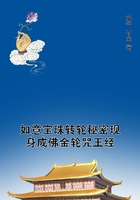Our limits do not permit us to add any extended selections from the many critical notices of the poem. The verdict of Jeffrey, in the Edinburgh Review, on its first appearance, has been generally endorsed:--"Upon the whole, we are inclined to think more highly of The Lady of the Lake than of either of its author's former publications [the Lay and Marmion]. We are more sure, however, that it has fewer faults than that it has greater beauties; and as its beauties bear a strong resemblance to those with which the public has been already made familiar in these celebrated works, we should not be surprised if its popularity were less splendid and remarkable. For our own parts, however, we are of opinion that it will be oftener read hereafter than either of them; and that, if it had appeared first in the series, their reception would have been less favourable than that which it has experienced. It is more polished in its diction, and more regular in its versification; the story is constructed with infinitely more skill and address; there is a greater proportion of pleasing and tender passages, with much less antiquarian detail; and, upon the whole, a larger variety of characters, more artfully and judiciously contrasted. There is nothing so fine, perhaps, as the battle in Marmion, or so picturesque as some of the scattered sketches in the Lay; but there is a richness and a spirit in the whole piece which does not pervade either of those poems, --a profusion of incident and a shifting brilliancy of colouring that reminds us of the witchery of Ariosto, and a constant elasticity and occasional energy which seem to belong more peculiarly to the author now before us."Canto First.
Each canto is introduced by one or more Spenserian stanzas,[FN#5]([FN#5] The Spenserian stanza, first used by Spenser in his Faerie Queene, consists of eight lines of ten syllables, followed by a line of twelve syllables, the accents throughout being on the even syllables (the so-called iambic measure). There are three sets of rhymes: one for the first and third lines; another for the second, fourth, fifth, and seventh; and a third for the sixth, eighth, and ninth.) forming a kind of prelude to it. Those prefixed to the first canto serve as an introduction to the whole poem, which is "inspired by the spirit of the old Scottish minstrelsy."2. Witch-elm. The broad-leaved or wych elm (Ulmus montana), indigenous to Scotland. Forked branches of the tree were used in the olden time as divining-rods, and riding switches from it were supposed to insure good luck on a journey. In the closing stanzas of the poem (vi. 846) it is called the "wizard elm."Tennyson (In Memoriam, 89) refers to "Witch-elms that counterchange the floor Of this flat lawn with dusk and bright."Saint Fillan was a Scotch abbot of the seventh century who became famous as a saint. He had two springs, which appear to be confounded by some editors of the poem. One was at the eastern end of Loch Earn, where the pretty modern village of St. Fillans now stands, under the shadow of Dun Fillan, or St. Fillan's Hills, six hundred feet high, on the top of which the saint used to say his prayers, as the marks of his knees in the rock still testify to the credulous. The other spring is at another village called St. Fillans, nearly thirty miles to the westward, just outside the limits of our map, on the road to Tyndrum. In this Holy Pool, as it is called, insane folk were dipped with certain ceremonies, and then left bound all night in the open air. If they were found loose the next morning, they were supposed to have been cured. This treatment was practised as late as 1790, according to Pennant, who adds that the patients were generally found in the morning relieved of their troubles--by death.
Another writer, in 1843, says that the pool is still visited, not by people of the vicinity, who have no faith in its virtue, but by those from distant places. Scott alludes to this spring in Marmion, i. 29:
"Thence to Saint Fillan's blessed well, Whose springs can frenzied dreams dispel, And the crazed brain restore."3. And down the fitful breeze, etc. The original MS. reads:
"And on the fitful breeze thy numbers flung, Till envious ivy, with her verdant ring, Mantled and muffled each melodious string,--O Wizard Harp, still must thine accents sleep?"10. Caledon. Caledonia, the Roman name of Scotland.
14. Each according pause. That is, each pause in the singing.
In Marmion, ii. 11, according is used of music that fills the intervals of other music:
"Soon as they neared his turrets strong, The maidens raised Saint Hilda's song, And with the sea-wave and the wind Their voices, sweetly shrill, combined, And made harmonious close;Then, answering from the sandy shore, Half-drowned amid the breakers' roar, According chorus rose."The MS. reads here:
"At each according pause thou spokest aloud Thine ardent sympathy sublime and high."28. The stag at eve had drunk his fill. The metre of the poem proper is iambic, that is, with the accent on the even syllables, and octosyllabic, or eight syllables to the line.
29. Monan's rill. St. Monan was a Scotch martyr of the fourth century. We can find no mention of any rill named for him.
31. Glenartney. A valley to the north-east of Callander, with Benvoirlich (which rises to the height of 3180 feet) on the north, and Uam-Var (see 53 below) on the south, separating it from the valley of the Teith. It takes its name from the Artney, the stream flowing through it.
32. His beacon red. The figure is an appropriate one in describing this region, where fires on the hill-tops were so often used as signals in the olden time. Cf. the Lay, iii. 379:
"And soon a score of fires, I ween, From height, and hill, and cliff, were seen, Each with warlike tidings fraught;Each from each the signal caught," etc.
34. Deep-mouthed. Cf. Shakespeare, 1 Hen. VI. ii. 4. 12:
"Between two dogs, which hath the deeper mouth;" and T. of S. ind. 1. 18: "the deep-mouthed brach" (that is, hound).
The MS. reads:















